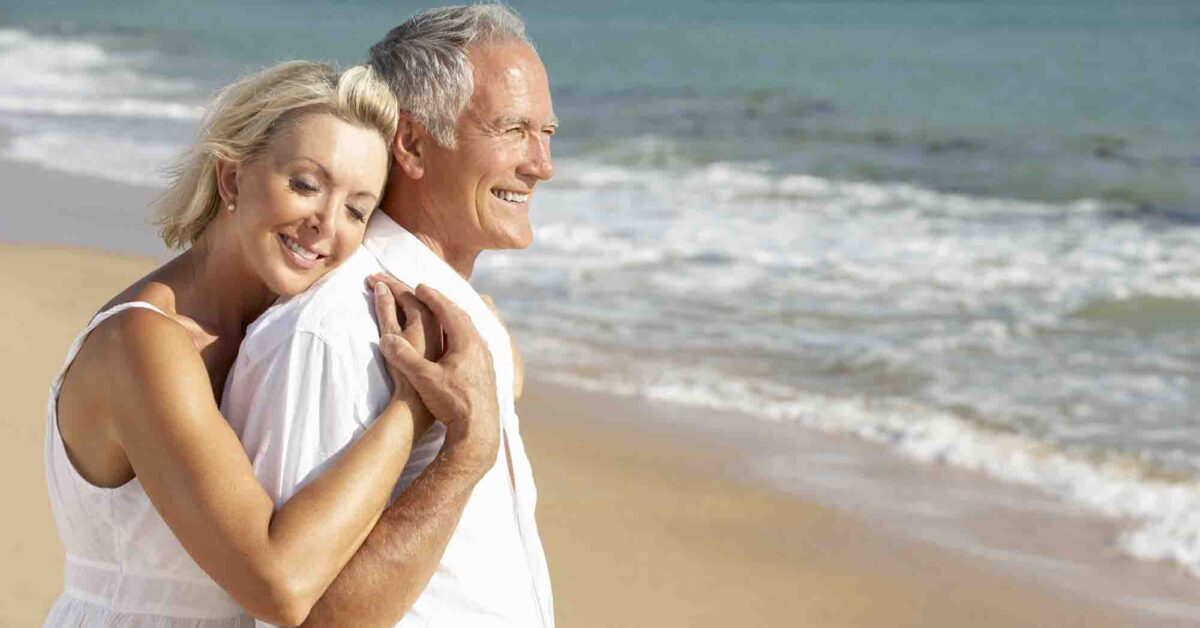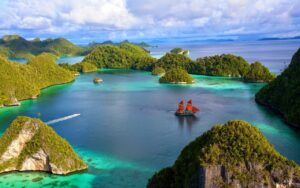Is the D7 the Best Retirement Visa For Moving to Portugal? -…
6 min read
If you’re thinking about retiring in Portugal as a non-EU/EEA or Swiss citizen, you’ve probably heard about the D7, which is often referred to as Portugal’s retirement visa. That’s more of a nickname than anything else (the D7 isn’t exclusively aimed at retirees) but the D7 does cater more to retirees than anyone else.
If you’re retired, there’s a good chance that this is the best visa visa for you to move to Portugal. However, it’s not the only visa, and in this article we’ll compare it against other visas like the golden visa and digital nomad visa.
In this article we’ll look at several other residency visas, including:
- The D7: Best for those that already have a passive income (such as a pension or social security).
- The Golden Visa: Best for those that want to obtain Portuguese citizenship without having to move to Portugal. It’s also a good choice for those that have sizeable cash savings but don’t have a passive income (such as a pension).
- The Digital Nomad Visa: Best for those that are still working and have a salary, and don’t have a passive income yet.
All of these visas allow you to live in Portugal full-time and allow you to apply for both permanent residency and Portuguese citizenship after 5 years. They also give you access to the Portuguese healthcare system and other benefits like Portuguese universities.
The D7
The D7 visa is aimed at those who have their own source of regular passive income. Examples sources of passive income include:
- A pension (private or state).
- US social security.
- Rental income.
- Income from investments (e.g. dividends).
- Royalties.
Your total passive income needs to equal (but ideally be above) the Portuguese minimum wage, which, as of 2024, is €820 per month.
Note: income for a salary is not included in this list as this isn’t considered passive income. Those with income from a salary or freelancing work should consider applying for the D8 or “digital nomad visa” instead.
What about savings? Savings are accepted in some instances but, generally speaking, most consulates will require you to have a form of passive income. Even with hundreds of thousands in savings, your visa still has a high chance of being rejected if you don’t have a passive income. For those with savings, the golden visa is usually more suitable.
The biggest downside to the D7 is that, like most Portuguese residency visas, it requires you to spend an average of 6-8 months per year physically in the country: 6 months without gaps and 8 months with gaps. This is the same as other visas like the digital nomad visa or D2 visa.
The golden visa, in comparison, only requires you to spend an average of 7 days per year, which suits those that want to travel or spend a lot of time outside of the country. The downside to the golden visa, however, is the fees, which are much higher than those for the D7. It also requires you to make an investment that’s typically around the €500,000 mark and, even though this investment may offer a return, this ties up that money for at least 5 years.
D7 visa requirements:
- Be either non-EU, non-EEA, or non-Swiss.
- Have an average passive income of €820 per month.
- Have a clean criminal record.
- Be willing to spend 6-8 months of the year in Portugal.
The Golden Visa
The golden visa (or ARI as it is often known officially) is a residency visa that allows you to live in Portugal in return for making a financial investment in the Portuguese economy. That could be something fairly altruistic like investing €250k in the Portuguese arts and culture sector or starting a company that provides jobs to locals, but it could be something as simple as investing in a fund, such as a venture capital fund.
These days, following the end of the real estate route, the most popular investment route is to invest €500,000 into a qualifying fund, such as a venture capital fund.
A few of the investment routes include:
- Invest €500,000 or more in qualifying funds, such as venture capital funds (these can’t be real-estate focused funds).
- Invest €500,000 or more into a company, which creates 5 jobs or maintains 10 jobs.
There are also more donation-focused options:
- Transfer €500,000 into public or private scientific research institutions.
- Transfer €250,000 into projects which support artistic production, recovery or maintenance of the national cultural heritage.
Note: As of 2023, it is no longer possible to invest in property and qualify for the golden visa. However, you can still purchase property as a non-resident or resident: it just won’t qualify you for the golden visa.
Why choose the golden visa:
There are two main reasons people opt for the golden visa over other routes like the D7 or digital nomad visa.
- They only want to spend the minimal amount of time in Portugal (e.g. 7 days average per year) as they want to travel or are still living somewhere else.
- They are unable to qualify for another, typically more affordable, visa like the D7 or digital nomad visa.
If you have the funds, however, this can be a great route to residency as it doesn’t tie you to living in Portugal full-time. Even though you may decide to spend your time here all year, you have the flexibility to come and please as you go and only spend the minimal 7 days per year.
Golden visa requirements:
- Be either non-EU, non-EEA, or non-Swiss.
- Invest or donate between €250,000 and €500,000 (depending on the investment route).
- Have a clean criminal record.
- Be willing to spend 14 days every 2 years in Portugal.
Read more about the golden visa
The Digital Nomad Visa
Introduced in 2022, the digital nomad visa, or D8, is aimed at remote workers and freelancers who earn a salary from abroad. It is a visa for those that are still working and so typically attracts younger applicants, but it could be suitable for those approaching retirement who are in a job that allows them to work remotely.
Applicants need to show an average income of around €3,280 per month. This is much higher than the D7, but on the plus side, it does mean the rules are much more black and white.
Like the D7, this visa requires you to spend an average of 6-8 months in Portugal (6 months with gaps and 8 without) so it’s really for those that want to settle in Portugal, at least for the 5 years before they’re able to apply for citizenship.
D8 Visa Requirements
- Be either non-EU, non-EEA, or non-Swiss.
- Have an average income of €3,280 per month.
- Have a clean criminal record.
- Be willing to spend 6-8 months of the year in Portugal.
Read more about the digital nomad visa
Benefits of Retiring to Portugal
There are a number of reasons to retire to Portugal, including:
- Weather: Portugal has some of the best weather in Europe. In the South, in particular, winter is extremely mild to the point where you can usually have Christmas outside.
- Low cost of living: Portugal has a lower cost of living, particularly when compared to North America.
- Healthcare: Like most European countries, Portugal has a public healthcare system along with a pay-to-access private healthcare system.
- Safety: Portugal is considered one of the safest places not just in Europe but in the world. Although nowhere in free from crime, many people report feeling extremely safe here.
- Beaches: Portugal is home to some of the world’s best beaches, including Praia da Marinha which has won numerous travel awards and has been featured in countless international publications.
- Tax incentives: Portugal offers a number of tax incentives to newcomers or those returning to Portugal.
Conclusion
There are other residency visas (such as the D2 or “entrepreneur visa”) but for retirees the most applicable are typically the D7, golden visa, or digital nomad visa.



